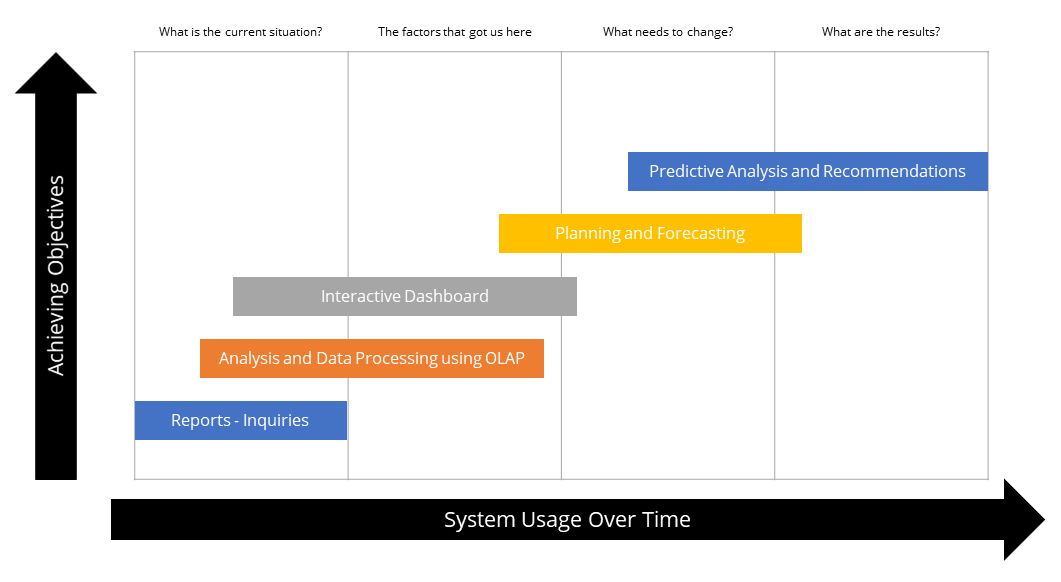First of its kind application of artificial intelligence to measure higher education learning outcomes in the Middle East
Article published in Arabic Harvard Business Review and MIT Technology Review
Under the Ministry of Education’s contribution to achieve the Saudi Vision 2030, and within the vision’s Quality of Life Program, the University of Najran has launched a vital initiative for improving educational methods in the Kingdom. The initiative aims to develop a smart and automated system to improve the learning outcomes at universities by enabling the direct and indirect measurement of skills acquired by students. Additionally, the system helps in automating quality management at higher education establishments such as universities and institutes.
Dr. Falah bin Faraj Al-Subaie, Director of Najran University has emphasized that Saudi Vision 2030 prioritizes the transition into a knowledge economy, which in turn requires a supply of qualified and experienced human resources that can compete in the job market. This is only possible through improving the quality of learning and education and ensuring graduate attributes match the skills and specializations required by the job market.
Despite the existence of many systems for quality management at higher education establishments, the initiative we are putting forward is unique because it provides a smart integrated system that covers all aspects of continuous measurement and improvement of quality in academic programs, in addition to its ability to support decision making using business intelligence technologies.
The vision behind the initiative is to redefine the role of universities to focus on graduate attributes, and the management of such attributes throughout the learning and education process through measurement, development and improvement in order to meet the demands of the job market.
In addition, the initiative aims to increase levels of competency and transparency to ensure higher quality in education, and to support universities with effective tools to help them respond to and comply with the recommendations issued by the National Commission for Academic Accreditation and Assessment (NCAAA) without the administrative burden.
Dr. Abdullah bin Saeed Alwadai, Dean of the College of Engineering and the lead behind the initiative said: We have high ambitions for this project to set an example in achieving the goals of Saudi Vision 2030. We will be the first to apply automation to complex applications such as the measurement, development and constant improvement of quality in higher education.
The initiative was born out of necessity when we noticed the amount of time consumed in developing and improving the educational process through both direct and indirect measurement of student’s acquired skills and their fitness for the intended outcomes and requirements of the job market.
Following a thorough study of both local and international experiments, we realized we needed a smarter and more flexible system to define all the processes and redesign them for the purpose of constant development and improvement of the quality of learning outcomes.
The initiative tackles the automation of measurement and development processes for learning outcomes on various levels (curriculum, program, graduate attributes, etc.), and we aim to arrive at a complete business intelligence system through which we can track everything and make better decisions
The system is built on a high-tech platform with a dynamic recommendation engine that applies advanced formulae to KPIs fed from the measurement process.
The system is also able to process a lot of data simultaneously by a lot of users (admin, faculty, and students). This facilitates the work of administrators and academics who are in charge of quality.
When asked about the project’s use of AI technologies, Alwadai said the whole point of using modern software and technologies in the processes of measurement, evaluation and improvement of learning outcomes is to automate these processes, enhance their efficiency and the impact of improvements through the use of AI-powered tools which are now available such as business intelligence BI tools and smart decision support systems and dashboards.
The use of AI in this initiative is of the highest order for Najran University as we promise to produce a modern and advanced software tool that would transform learning outcomes across universities in the Kingdom by achieving effectiveness and efficiency of measurement, evaluation, and improvement processes. It would be packed with advanced features and modules designed specifically to meet local requirements and bridge the gap in the job market.
We have partnered with the best local and international companies who are experienced in this type of projects and able to summon and lead a large group of experts and specialists required for this kind of projects which is considered state-of-the-art even on an international level.
On the partnership between Najran University and Tatweer Co. for Educational Services for this initiative, Dr. Mohammad Abdullah Alzoghaibi, CEO of Tatweer said he considers the project to be exemplary for the education sector in general as it fulfills the needs of universities not only in Saudi Arabia but across the GCC and the Arab world.
Tatweer aims to be the partner of choice for intelligent and integrated educational solutions that help educational establishments achieve Saudi Vision 2030. To ensure the success of Najran University’s initiative, Tatweer has deployed all its capabilities and its experienced staff to work diligently alongside the technical team executing the project and the management team from Najran University.
Eng. Wassim Shaar, Managing Director of NVSSoft®, the company in charge of delivering the project, said: The use of intelligent systems in managing learning outcomes in higher education is one of the latest disciplines adopted by modern nations through programs and initiatives on a national level such as in the United Kingdom, or at the university level such as in the United States.
The primary challenge in developing an intelligent system on a national level led by Najran University through this initiative lies in designing the decision support matrix to function at all levels, starting with the professor of a subject, all the way to president of the university, and from there to the decision makers at the ministry of education, and upwards to the tip of the pyramid in strategic decision making, which in the case of Saudi Arabia is the entities in charge of Saudi Vision 2030.
To further explain the initiative, Dr. Alwadai said: Most systems used for measuring, developing and improving learning outcomes at Saudi universities include an acceptable level of statistical operations that can be performed on results, in addition to graphical charts and dashboards. Most of those systems also include to standard reporting capabilities to varying levels of details, and some allow for custom reporting. We had to exceed all those systems and produce something much more powerful by adding intelligent components.
The intelligent recommendation engine comprises a number of stages through which the system learns and processes data in order to produce recommendations supported by figures, measurements, and past experiences. The following diagram shows the different stages of learning in the system and how it matures as it gets used:

Dr. Alwadai also explained the BI framework used by the initiative: Intelligent systems rely heavily on processing big data and finding repeated patterns or anomaly patterns. For this method to be successful we need to have data available across multiple dimensions for what is known as multidimensional online analytical processing MOLAP.
The learning outcome management system at Najran University features the following key components:
- KPI Management Tool
- Rules Builder Tool
- Improvements Plan Repository System
- Decision Support System Dashboard
It’s not possible to accomplish an intelligent system without a few essential tools such as the rules builder and the molding tool which allow us to apply a variety of rules on data in order to extract and modulate information and store it in data warehouses.
We must also consider that the rules builder must allow us to arrive at a recommendation if we follow a series of logical steps starting with KPIs or events data and branching out with logical formulae to arrive at the final decision in a process called forward-chaining.
Likewise, it should allow us to arrive at the decision starting with the end goal or decision in mind and working backwards logically to arrive at required KPIs in a process called backward-chaining.
Najran University’s initiative has just completed its first phase, and it’s expected to start a pilot project in 2019 and implement a national version of the solution in 2020 which is the year the transformation plan is due.





